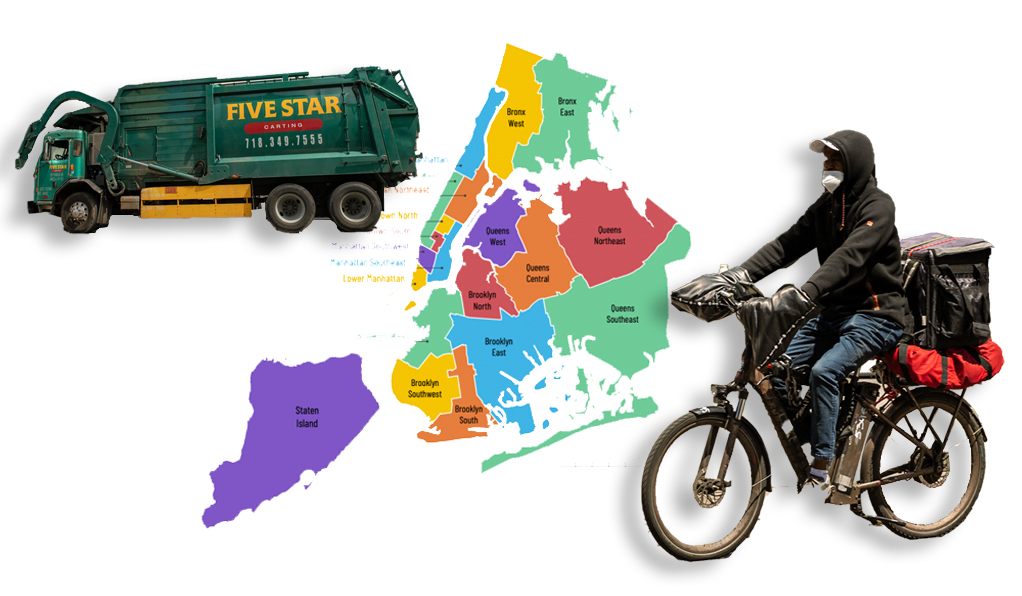
"Since 2021, third party restaurant delivery apps have been licensed by the city Department of Consumer and Worker Protection, which oversees these apps under Local Law 104 of 2021. That $200 license last two years and gives blanket permission for billion-dollar firms to operate citywide without requiring meaningful compliance from delivery companies. This licensing framework is so all encompassing that no app company has ever been threatened with a loss of its license, at least publicly, despite the numerous complaints about these app's business practices."
"City leaders keep responding piecemeal - a new 15-mile-per-hour speed limit, a bathroom access bill, a limited bike trade-in subsidy, t he confiscation of tens of thousands of gas mopeds, a stalled proposal to repurpose newsstands as charging hubs, and a under-resourced Department of Sustainable Delivery meant to coordinate the mess. Each initiative tackles the latest headline, but together they form a patchwork of unenforced rules layered on top of toothless licenses."
Since 2021, third-party restaurant delivery apps have operated under a $200, two-year license issued by the city Department of Consumer and Worker Protection under Local Law 104 of 2021. The license provides blanket permission for large firms to operate citywide without robust compliance requirements, and no company has publicly faced license revocation despite many complaints. Top constituent complaints include speeding e-bikes, sidewalk riding, unlicensed mopeds and indoor battery charging. City responses have been piecemeal—speed limits, bathroom access, a bike trade-in subsidy, moped confiscations, stalled charging-hub proposals and an under-resourced coordinating department—creating a patchwork of largely unenforced rules. App companies assert they cannot control the rider network and classify riders as independent contractors. New York previously faced a similar problem with commercial waste collection and developed a solution.
Read at Streetsblog
Unable to calculate read time
Collection
[
|
...
]